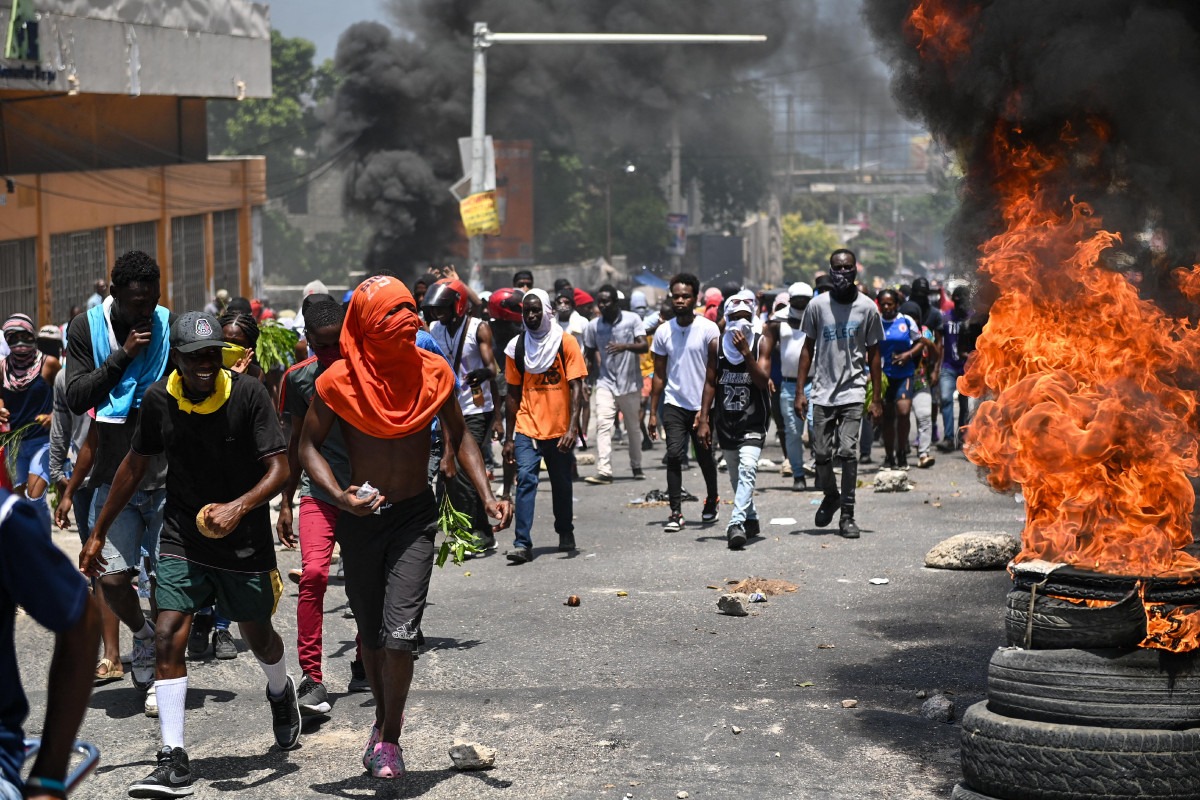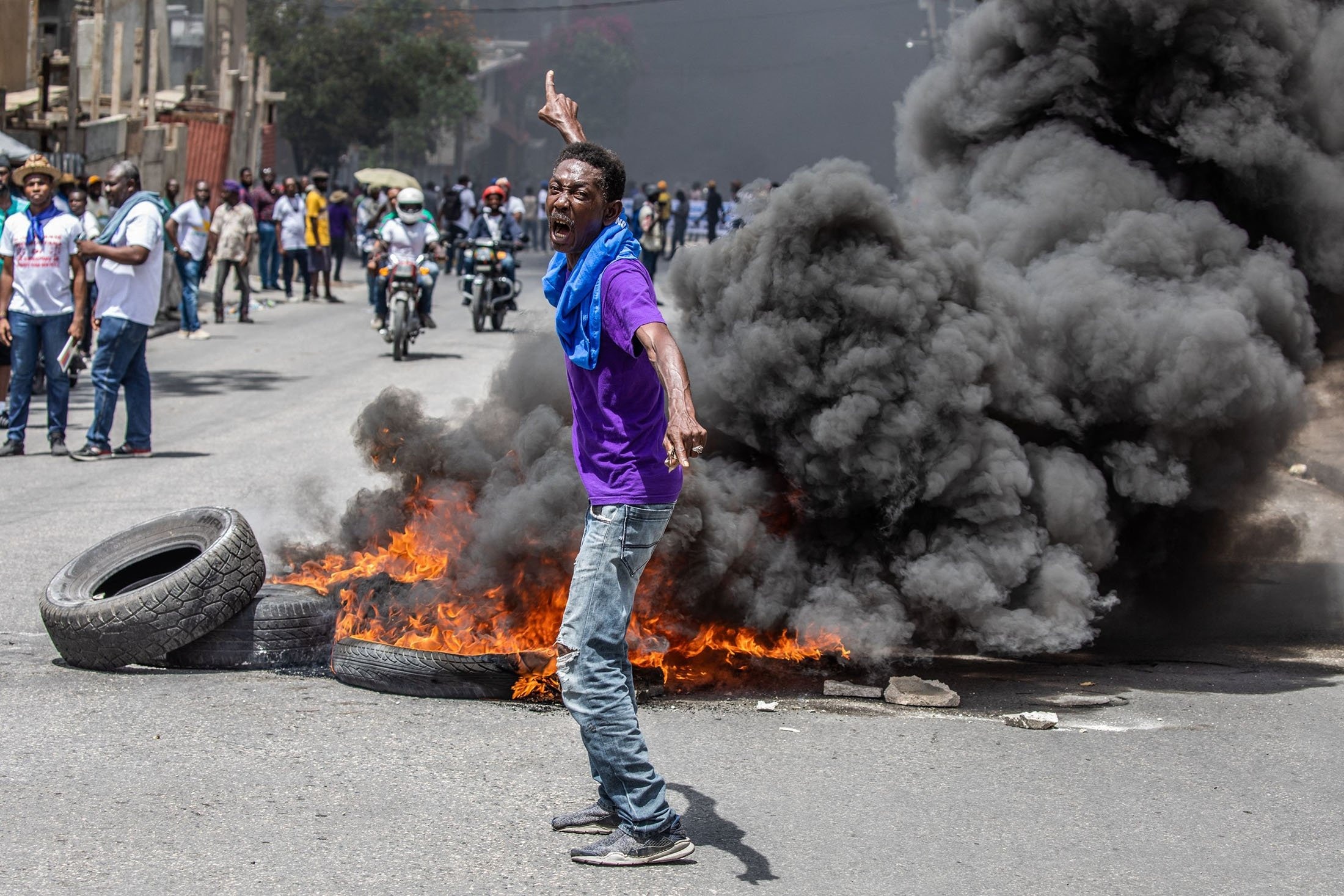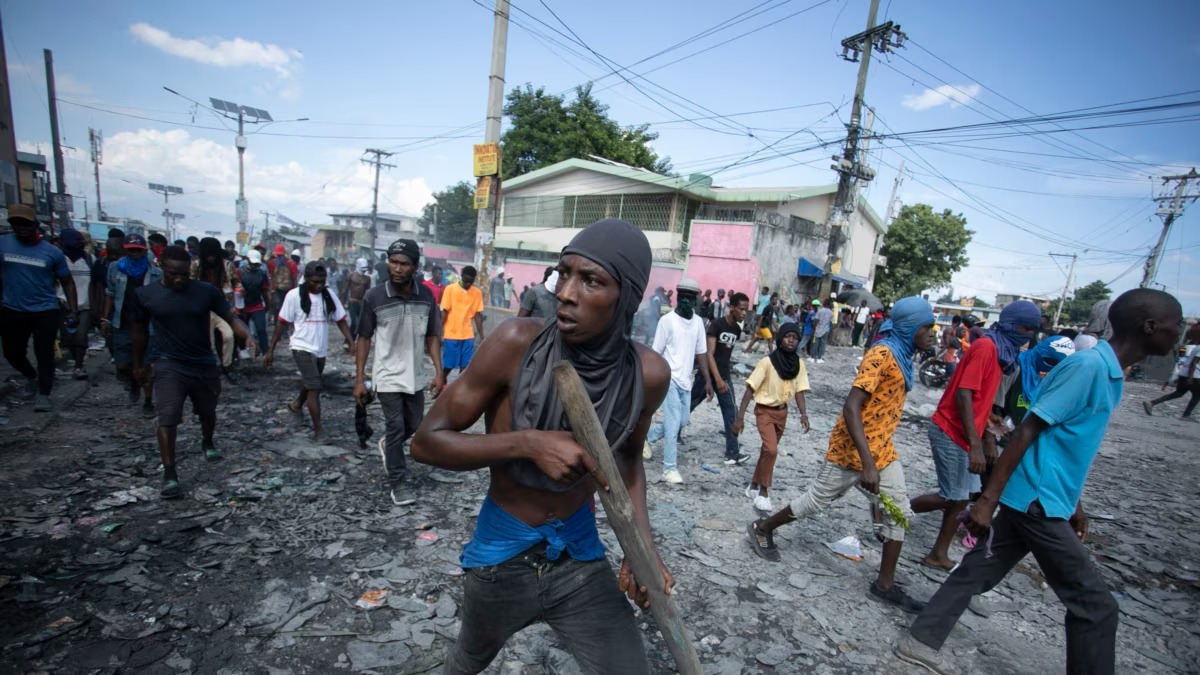The resignation of Haitian Prime Minister Ariel Henry marks a significant moment for U.S. diplomacy, which had focused on supporting him in power despite warnings from experts and Haitian civil society.
Under Henry’s tenure, armed gangs grew stronger, and the government’s authority waned, leading to increased reliance on U.S. support and the promise of an international police mission.
Dan Foote, the former special envoy to Haiti under the Biden administration, highlighted the frustration many feel regarding the U.S. government’s lack of urgency in addressing Haiti’s issues.

Haiti Crisis (Credits: Politico)
Foote resigned in 2021 in protest against deportations to Haiti. The resignation comes amid escalating attacks by criminal gangs on key installations in Port-au-Prince, including the airport, and Henry’s inability to secure additional support for Haiti’s National Police.
Henry, who was serving as an acting prime minister and acting president, was intended to be a transitional figure following the assassination of former President Jovenel Moïse in 2021.
Despite State Department support to rebuild the government structure, Henry was unwilling to relinquish power until he was shut out of the country.
Secretary of State Antony Blinken has been engaging with Caribbean allies and Kenya to find a way forward in response to the crisis. Blinken traveled to Jamaica, where he discussed the issue with Jamaican Prime Minister Andrew Holness.

Haiti Crisis (Credits: Daily Sabah)
The U.S. supports creating a transitional presidential council in Haiti to address immediate needs, deploy a multinational security support mission, and facilitate free and fair elections.
However, the requirement for the presidential council to support foreign military intervention has raised concerns among some parts of Haitian civil society.
Guerline Jozef, executive director of the Haitian Bridge Alliance, emphasized the need for a Haitian-led solution that does not impose conditions contrary to Haiti’s interests.
The situation in Haiti underscores the challenges of balancing international intervention with the principles of self-governance and sovereignty.
While the international community aims to stabilize Haiti, there is a growing recognition of the importance of allowing Haitians to govern themselves with support rather than imposition from abroad.























